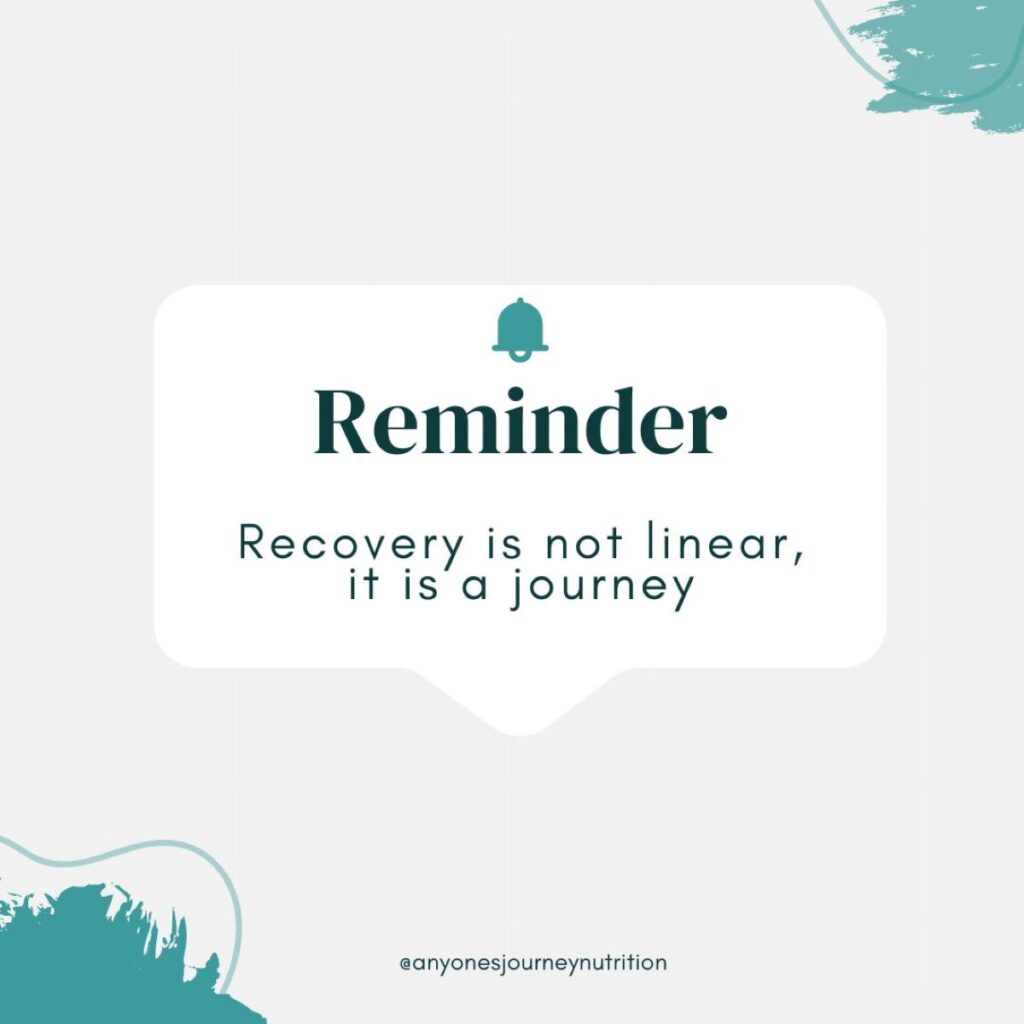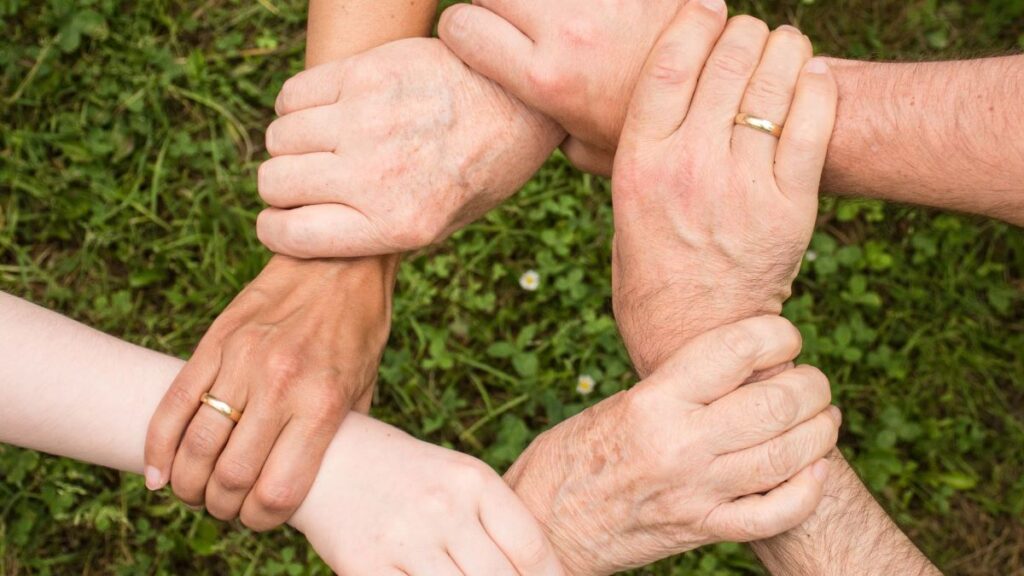The summer is often viewed as a time for fun in the sun, days spent poolside or freedom from the regular routine.
However, for individuals struggling with an eating disorder, the summer months can pose a challenge in their road to recovery.
It is in this season that you can support your loved one by having an awareness of relapse warning signs and understanding how you can help navigate seasonal challenges.
Keep reading to learn effective strategies that can be implemented to prevent an eating disorder relapse during the summer.
What is an Eating Disorder Relapse?
An eating disorder relapse is a regression back to disturbances in eating behaviors and a time when an individual displays emotional, behavioral or physical eating disorder symptoms.
Relapses are common among all types of eating disorders. Studies have shown that the probability for a relapse was 43% for individuals with bulimia nervosa and up to 52% for individuals with anorexia nervosa.
It is important for caregivers to understand that a relapse is not a reflection of failure or weakness but instead part of the complex nature of recovery.
Lapse vs Relapse
A lapse or “slip” is a single episode of regression compared to a relapse, which is a longer period of time that an individual regresses back into disordered habits.
Eating Disorder Relapse Triggers
Relapses can be triggered by various factors such as emotional stress, societal pressures or changes in routine.
Unfortunately, the summer often encompasses all of these factors and can be a season that causes your loved one to revert back to eating disorder behaviors. As a caregiver, you can be aware of these challenges to provide the necessary support and minimize the risk of a relapse.
Let’s review some potential summer challenges.
Increased focus on body image and appearance
One common challenge is the increased focus on body image and appearance. Terms such as “bikini ready” or “beach body” can trigger emotional responses and promote body image distress.
Other body image triggers could include:
- Discussions or comments among friends or family members about weight or desire to lose weight for the upcoming season.
- Increase of body image focused messaging on social media feeds.
- Trying on summer clothes from the prior season that no longer fit the same.
How To Support: Encourage shifting the focus to overall well-being rather than striving for unrealistic and unsustainable ideals.
Social Pressures
Another potential challenge is the increase in events that are centered around food. From backyard barbecues and pool parties to vacations, individuals can experience increased anxiety around these activities that have a heightened focus on food.
How To Support: Plan nonfood related activities throughout the summer that your loved one would enjoy and invite family and friends to join.
Routine Changes
Additionally, changes to your loved one’s routine can pose a challenge when it comes to mealtime and planning. If in charge of planning vacations or travel, consider the impact the arrangements will have on any current meal schedule.
How To Support: Work with your treatment team to create a meal plan specific to your travel schedule.
Warning Signs of an Eating Disorder Relapse
If you see a loved one struggling with any of the triggers mentioned above, acknowledge and take the time to address your concern. This can be a pivotal moment and possibly the encouragement they need to seek professional help before a relapse occurs.
As a reminder, here is a list of common signs that one may redisplay if triggered:
- Beliefs focused on weight loss, diets, food rules or eating patterns
- Mood swings
- Withdrawal from social activities, especially ones where food is involved
- Distorted body image
- Skipping meals or irregular eating patterns
- Hiding food
- Fear around weight gain
- Fear with certain foods or food groups
- Rapid weight changes (up or down)
- Constipation
- Low blood pressure
- Loss of menstrual cycle
- Growth of hair all over the body
- Generalized weakness
- Brittle hair and nails
- Low self esteem
- Perfectionism
It is important to note that your loved one does not have to present with one of these specific warning signs for there to be a concern or further support needed.

Strategies for Preventing a Relapse in Summer
Regardless of where your loved one is at in recovery, you as the caregiver should always be prepared that a relapse is possible.
Recovery is not linear; it is a journey that is often accompanied with both successes and struggles.
However, we want to share 5 strategies you can implement during the summer to offer support and minimize the risk of a setback.
Have a Supportive Treatment Team
Having a supportive treatment team is important through the entire year. This team may include a registered dietitian, therapist, medical doctor and/or psychiatrist.
As summer rolls around, it is essential to coordinate treatment with this team to continue therapy and regular appointments. This allows for open communication for your loved one to express thoughts, feelings and emotions. It also provides a support system to seek valuable guidance to navigate challenging circumstances.
It can be extremely helpful to work alongside the treatment team to understand the details of your loved one’s relapse prevention plan and the best approach to maintain a summer routine.
Develop a Summer Self-Care Routine
Self-care is the concept of taking action or engaging in activities to improve your overall well-being. It does not come easy to everyone, but prioritizing self-care allows your loved one to find fulfillment in daily activities, understand self-compassion, and create resiliency to combat future stressors.
Work together to review self-care activities to identify that ones that promote relaxation and emphasize things they enjoy. For some, reading a book outdoors may be interesting while others may enjoy spending time indoors.
It can be helpful to provide support by encouraging your loved one to look at self-care as a tool as they move through recovery. As they determine what activities they enjoy, show compassion and respect for their decisions.
Plan Ahead for Challenging Situations
At the start of the summer, have open communication to anticipate triggering events. This can be done in conjunction with your treatment team. Identifying specific times or situations that may be triggering for your loved one allows coping strategies to be developed.
It is important to keep our guidelines for communication at top of mind during these conversations. First, avoid judgment and criticism. Second, engage with active listening and provide validation. Lastly, be respectful and use compassionate language.
Review examples of what to say to someone with an eating disorder to help guide the conversation.
Focus on Body Acceptance
Practicing body acceptance and challenging negative self-talk should remain a priority all year, but with a heightened focus during the summer.
Social media feeds tend to be more active with triggering messages and promotion of “ideal bodies” so engaging in activities that promote body appreciation can minimize eating disorder thoughts from re-emerging.
Provide these 40 body positive affirmations to your loved one that they can use as a tool when unhelpful thoughts or emotions appear.
Stay Connected
As a caregiver, you too may feel overwhelmed or confused on how to navigate the summer months. Engage in support groups, online communities or work with your loved one’s treatment team to receive continued encouragement for yourself.
This network of understanding and empathetic individuals can provide support during difficult times and provide valuable guidance.
The Best Way to Handle a Relapse
It is important to keep in mind that even with all these strategies in place, your loved one may still experience a relapse. The best way to handle it is encouraging your loved one to seek professional help.
Here at Anyone’s Journey, we emphasize understanding why the behaviors are happening in the first place. With the assistance of other providers that make up a client’s team, we can start implementing small, incremental nutrition interventions to shift the client away from the disordered lens.
The accessibility of health information available to our clients can certainly be a contributor to some disordered thoughts and actions. Our job is to provide accurate nutrition information, backed up by science, so the client can start developing their own food philosophy that provides and nourishes their body appropriately.
Anyone’s Journey specializes in eating disorders and disordered eating with the approach that short strides result in long term possibilities. Our clinicians are also experienced in helping individuals that desire weight loss or are navigating chronic diseases.
It is also never too early, nor too late, to seek guidance on how to help someone with an eating disorder. Contact us by calling 612-638-2778, emailing contact@anyonesjourney.com or completing our Referral Form.

